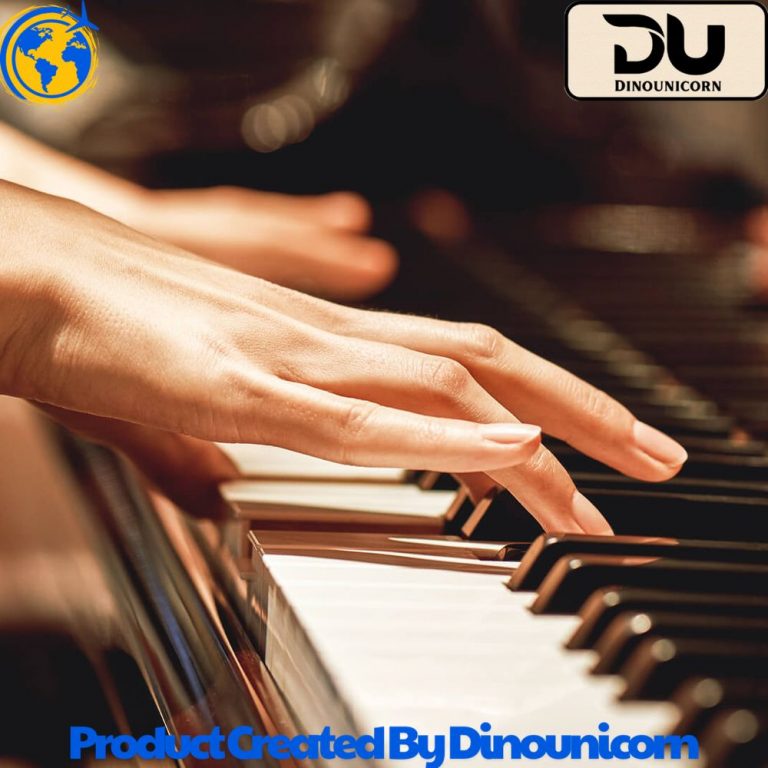Blog
Why Do People Like to Play the Piano?
Why Do People Like to Play the Piano?
The piano is one of the most beloved musical instruments worldwide. People of all ages and backgrounds enjoy playing the piano for a wide variety of reasons. From its ability to provide relaxation to its numerous emotional, cognitive, and physical benefits, the piano offers a unique experience that draws individuals to it time and again. This article explores why people enjoy playing the piano, including the emotional benefits of playing the piano, cognitive benefits, and much more.
Why Do People Enjoy Playing the Piano?
The Joy of Playing Piano
Playing the piano is not only about creating music; it’s also about the personal joy it brings. The passion for piano playing is a driving force for many musicians, whether beginners or professionals. People find personal satisfaction from playing piano and often describe it as a deeply fulfilling activity. For many, the act of playing the piano is both a creative outlet and a means of self-expression, which makes it an enjoyable and rewarding pursuit.
Playing Piano for Fun and Relaxation
The piano provides a much-needed escape from daily stresses. Stress relief through piano playing is one of the key reasons why many choose to play this instrument. As a form of relaxation, playing the piano allows individuals to focus their minds, often leading to a sense of calm and tranquility. Whether through improvisation or playing a familiar piece, playing piano for relaxation offers a simple yet effective way to unwind after a busy day.

The Emotional Benefits of Playing the Piano
Piano and Emotional Well-Being
Playing the piano has a profound impact on emotional health. Emotional benefits of piano include its ability to help manage stress and improve overall well-being. Research shows that music, particularly the piano, can serve as a tool for emotional release. It allows individuals to connect with their feelings, whether they are experiencing joy, sadness, or nostalgia. This emotional connection can be particularly important for those dealing with mental health challenges.
Piano as a Form of Self-Expression
The piano provides a unique avenue for individuals to express their emotions. Whether playing classical music, jazz, or contemporary pieces, the piano allows for a broad range of expression. Piano as a form of self-expression enables players to convey feelings that might be difficult to articulate in words. This sense of emotional freedom through music is why many people find the piano so compelling.
Social Benefits of Playing Piano
While playing the piano is often a solitary activity, it can also bring people together. Whether through performance, teaching, or group lessons, playing the piano has notable social benefits. Sharing music with others fosters a sense of community and connection, strengthening relationships and offering opportunities for collaboration. For many, this social aspect of piano playing enhances their overall experience with the instrument.
Cognitive and Mental Health Benefits of Playing Piano
Cognitive Benefits of Piano
One of the most widely recognized advantages of playing the piano is its cognitive benefits. Learning and practicing the piano require concentration, memory, and problem-solving skills, all of which contribute to brain development. As players develop their piano skills, they also enhance their ability to focus, improve their working memory, and sharpen their critical thinking abilities. These cognitive benefits extend to other areas of life, improving overall brain function.
Piano for Mental Health
Piano for mental health is a growing area of interest, with many studies highlighting the therapeutic effects of playing the instrument. Playing piano helps reduce anxiety, depression, and stress levels by inducing a relaxed state of mind. Music therapy, often incorporating piano, has been proven to have positive effects on mental health, particularly in managing emotional disorders. The mental stimulation involved in learning new pieces or techniques further contributes to emotional balance.
Piano and Hand-Eye Coordination
Learning the piano improves hand-eye coordination, a crucial skill for overall physical development. The complex movements involved in playing piano require the brain and body to work in harmony. This enhanced coordination can be beneficial for other daily tasks and physical activities.
Piano as a Hobby or Lifelong Skill
Learning Piano as an Adult
There is no age limit to learning the piano. In fact, many adults are picking up the instrument later in life. Learning piano as an adult can be incredibly rewarding. The benefits of starting piano at any age include enhancing cognitive abilities, providing a creative outlet, and improving emotional well-being. Advantages of learning piano later in life include improved memory and concentration, as well as the satisfaction of mastering a new skill.
Mastering Piano for Beginners
For those just starting out, the journey of mastering piano for beginners is filled with both challenges and rewards. As beginners gain proficiency, they experience a sense of accomplishment that fuels further learning. The more advanced one becomes, the more gratifying the experience, and the opportunity for musical expression expands.
Why Piano is Popular and a Favorite Instrument
The piano’s versatility is one reason why it is such a favorite instrument. Unlike many other instruments, the piano can easily accommodate a wide range of musical genres. Whether playing classical, jazz, pop, or rock music, the piano can express diverse musical styles. This adaptability is why piano is popular with musicians worldwide.
Physical Benefits of Playing Piano
How Piano Improves Concentration and Focus
Playing the piano requires intense concentration, which is a key factor in improving focus. The act of learning new pieces, remembering sheet music, and coordinating both hands helps players enhance their attention span and cognitive clarity. Over time, how piano improves concentration also translates to better performance in other areas of life, such as work or studies.
Physical Benefits of Piano Practice
While it may seem like a purely mental activity, playing the piano has notable physical benefits. These benefits include improved posture, flexibility, and motor skills. The repetitive motions of playing also help improve finger strength and dexterity, which is important for overall physical health.

Conclusion
Why do people like to play the piano? There are countless reasons, from the joy of playing piano to the profound emotional benefits of piano. The cognitive benefits of playing piano are clear, and the instrument provides a creative outlet and a method of relaxation. Whether for personal enjoyment, social interaction, or mental stimulation, the piano offers a rich and rewarding experience.
If you want to explore more about the therapeutic effects of piano or discover additional benefits, you can check out some helpful resources: Dino Unicorn, Fresh Milk Tee, Reasons to Learn to Play Piano, Why I Love Playing Piano.
If possible, please visit the website dinounicorn.com or freshmilktee.com to support us.
Frequently Asked Questions
- What are the emotional benefits of playing the piano?
Playing the piano helps improve emotional well-being by providing a form of self-expression, reducing stress, and promoting relaxation. - Can playing the piano reduce stress?
Yes, stress relief through piano playing is one of the primary benefits. Playing music can create a calming atmosphere and alleviate stress. - Is it too late to start learning the piano as an adult?
Absolutely not! Many adults begin learning the piano later in life and experience the cognitive and emotional benefits of playing. - How does playing the piano help with concentration?
Playing the piano requires intense focus and attention, which leads to improvements in overall concentration and mental clarity. - Why is the piano considered a versatile instrument?
The piano is considered versatile because it can accommodate various musical genres, from classical to modern, making it a favorite choice for musicians worldwide.
 Skip to content
Skip to content

